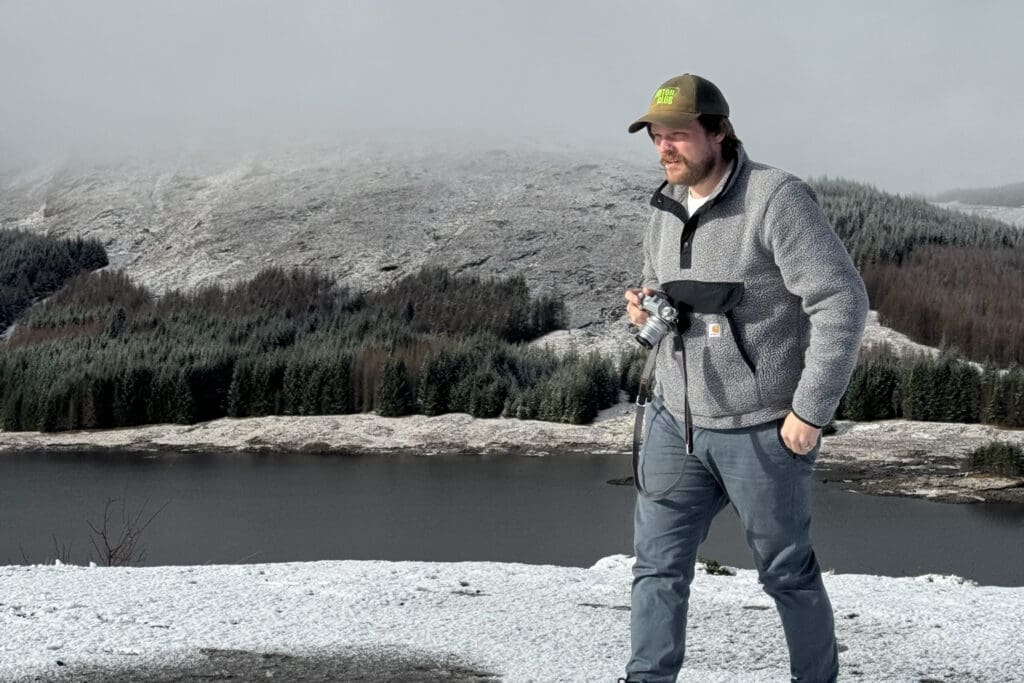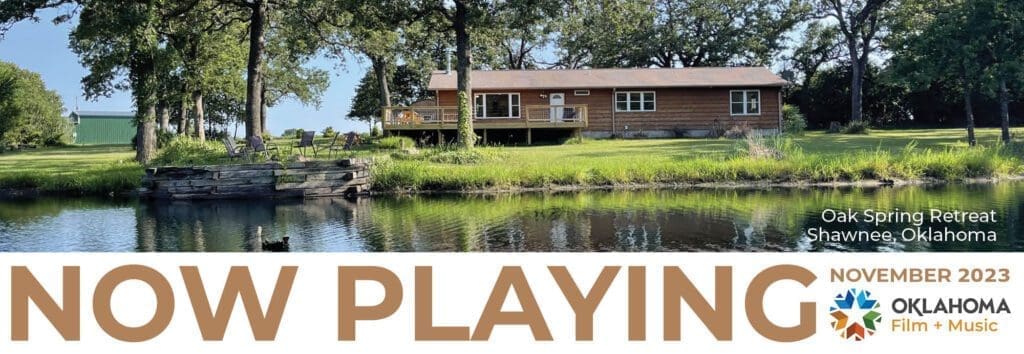Based in Claremore, Okla., Jake Basnett is a Chief Lighting Technician in the film, television and commercial production industries. Originally from Tulsa, he began his career in Los Angeles and returned to Oklahoma in 2020. Basnett has worked on numerous large studio productions and many small independent projects.
How did you get started in the film industry?
I fell into the lighting and camera world in Los Angeles after attending art school for photography and creative writing. I really enjoyed the moving image and wanted to learn the craft. I started out on UCLA student films, and after a few of those, I found my way onto larger productions.
What are some of your most recent successes (credits or accolades) related to your career in the industry?
This year, I’ve had the pleasure of gaffing several features in Oklahoma, notably “Sarah’s Oil” and “The Last Rodeo.”
What has your career in the state’s film industry taught you?
I believe our local industry can rival any film crew nationwide. We have some incredible talent in Oklahoma. Productions don’t need to bring entire teams of people from out of state, we have a thriving and knowledgeable crew base right here in Oklahoma.
What is the highlight of your career thus far?
Working on three seasons of the hit Emmy-nominated television show “Reservation Dogs.”
What is your favorite aspect of working in Oklahoma’s film and television industry?
I love the people of this state and the diverse natural beauty we get to film in all four corners of the state.
What’s the best piece of advice you have for someone starting their career in Oklahoma’s film industry?
Do good in whatever you do and don’t ever turn down an opportunity when it arises.
How does someone in your field/department best promote/market themselves to those hiring in your industry?
This industry is still pretty old school – jobs are mostly word of mouth. Producers want to hire people they can trust.
What’s the one item you can’t live without on-set, and why?
I need to have my meters, even if they are only used a few times a day. Accurate readings of light, color and electricity are crucial for producing images efficiently.
Would your career be impacted without the state’s film incentive program? If so, how?
The film industry in Oklahoma has been steadily growing since I moved back here in 2020. Until this year, I frequently traveled out of state for work. But, this year has been different as Oklahoma is becoming a viable option for productions of all sizes.
Where do you see yourself – AND – Oklahoma’s film industry in the next five years?
We are currently witnessing a significant shift in the production of content in the United States. Oklahoma is leading the way in this migration and renaissance within the film and TV industry. This is due to continued investment in infrastructure, workforce training, film-friendly communities and a talented pool of Oklahoma artists and technicians. With highly skilled local filmmakers and storytellers, Oklahoma has the potential to emerge as a major player in independent cinema and mid-budget studio productions, provided that the state’s film tax incentives and grants remain competitive. We need to build up and support more local filmmakers telling Oklahoma stories, I think that’s where success in our future lives.
What are you working on now or next?
I have several projects in the pipeline this fall, all right here in Oklahoma.
Each featured individual or business is given the provided questions to answer in their own voice. Other than formatting and grammar, the answers are personal to each featured voice, and are not provided by the Oklahoma Film + Music Office.


